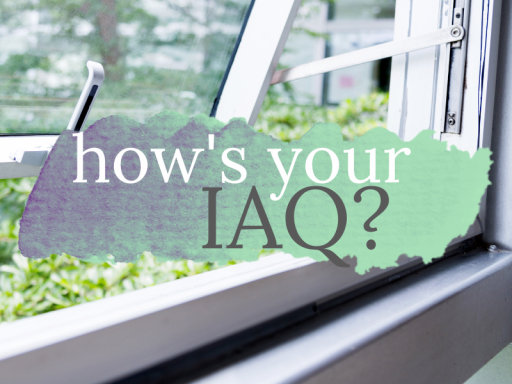It’s up to both the employer and the employee to stay alert to the air quality in their indoor workplace. Why? Because poor indoor air quality can cause breathing problems, headaches, eye and skin irritations, nausea, dizziness and fatigue. If employees are coping with a decline in health, it can often be hard to pinpoint why. So, it’s time to get aware of how IAQ (Indoor Air Quality) can affect us, and take steps to improve it.
🔴 Employers need to know - what factors contribute to IAQ
Indoor air can be dangerous when it contains carbon monoxide, ozone, radon, asbestos, VOCs—Volatile Organic Compounds—and other dangerous gases.
Some of the common causes of a reduction in IAQ:
- Poorly maintained HVAC systems
- Mould problems - from flooding or leaking
- Outdoor pollutants coming into the building
- Cleaning products
- Mechanical equipment
- Painting and renovations
🔎 When you look into your workplace air quality, put on your Detective Hat and consider these things:
- Check the HVAC system is working correctly
- Consider the air movement pathways in your building
- Think about the building’s air pressure – keeping air pressure slightly positive prevents outdoor air from entering
- Check the building’s temperature. The comfort range is 20-25°C
- Compare the pattern of complaints – if multiple employees are reporting something from the same location, or at the same time of day, check it out!
- Investigate work processes that could emit air contaminants
🟡 Employees need to know - how to avoid contributing to indoor air pollution
It’s important to understand that every one of us can create, or contribute to, indoor air quality hazards. Do your part to keep hazards reduced by considering these things:
- Don’t wear too much perfume or cologne
- Don’t smoke indoors
- Don’t block air vents
- Dispose of food waste and rubbish the right way. Do you know how strong a banana peel can be?
- Let your supervisor know about potential air-quality issues
If you want to make sure you are covering all the important bases in making your workplace safer, get in touch with us – we’re happy to help.
abarrett@whatnosafety.co.uk | 01722 326 390

